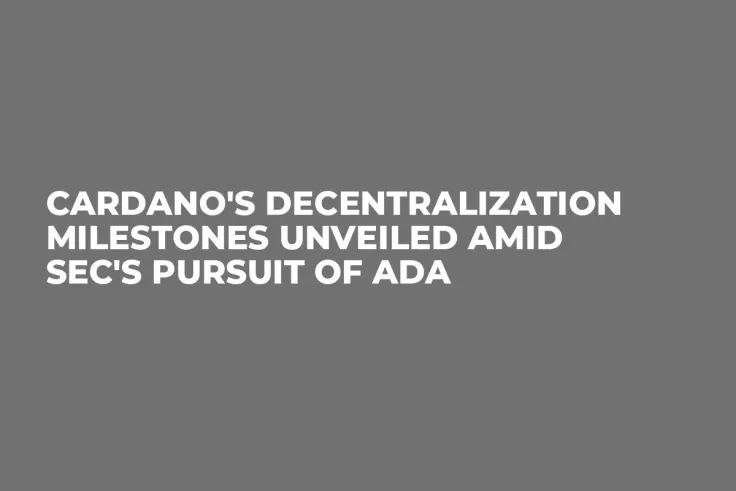In a recent update from Input Output, the development team at Cardano shed light on its ongoing efforts to achieve blockchain decentralization. One notable development is the implementation of a new feature called light peer sharing, allowing unregistered nodes to join the network and participate in peer sharing.
Although this experimental feature is currently disabled until the completion of the Genesis and Eclipse Evasion implementations, it signifies a significant step toward the enhanced inclusivity of the Cardano network.
Another key focus for Cardano is the Voltaire era, aimed at revolutionizing decentralized blockchain governance. Discussions surrounding the establishment of an initial Minimum Viable Governance (MVG) framework, as part of CIP-1694, have been underway this week. This framework holds immense importance for fostering participatory governance within the Cardano ecosystem.
Additionally, proposals such as CIP-30 and CIP-95 have been introduced to empower ADA holders with voting capabilities, allowing community members to democratically express their consent on governance matters once wallet providers implement these mechanisms.
Despite recent events causing disruptions within the ecosystem, Cardano remains committed to its mission of innovation, with decentralization serving as a central theme. However, the shadow cast by the SEC's pursuit of ADA continues to have negative implications. Today, ADA faced delisting from Bakkt, a prominent U.S. trading platform, further intensifying the impact of regulatory scrutiny.




 Dan Burgin
Dan Burgin Vladislav Sopov
Vladislav Sopov